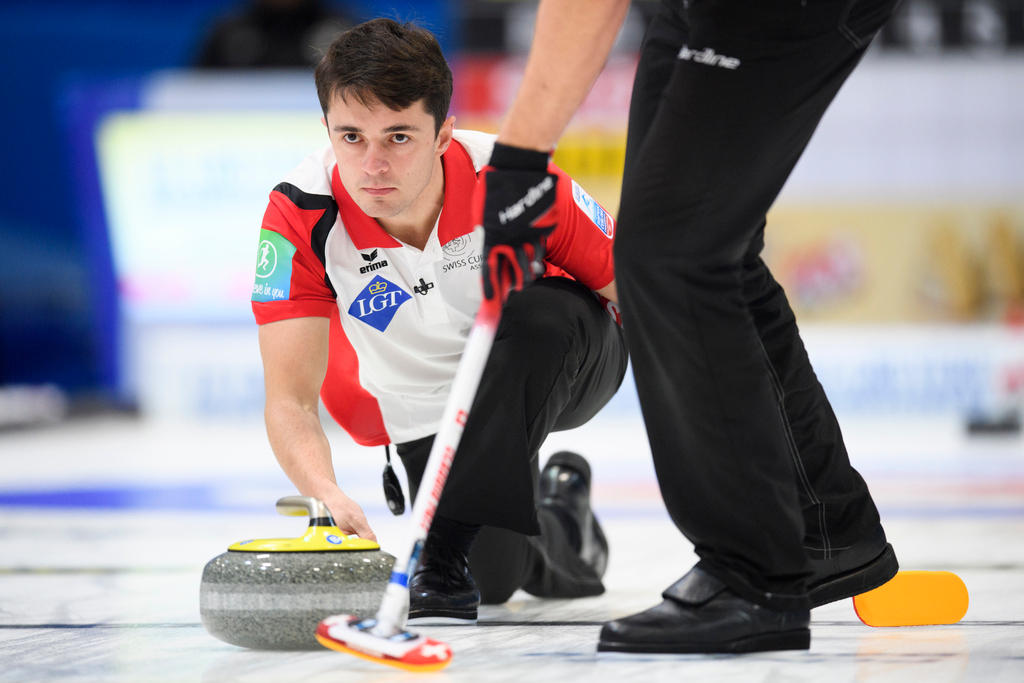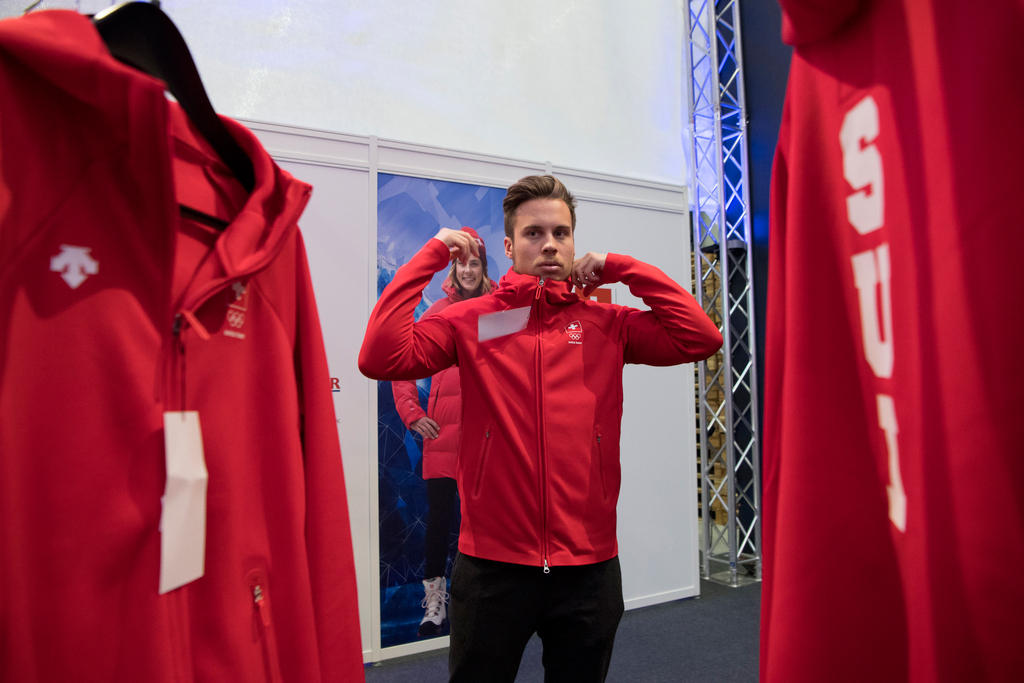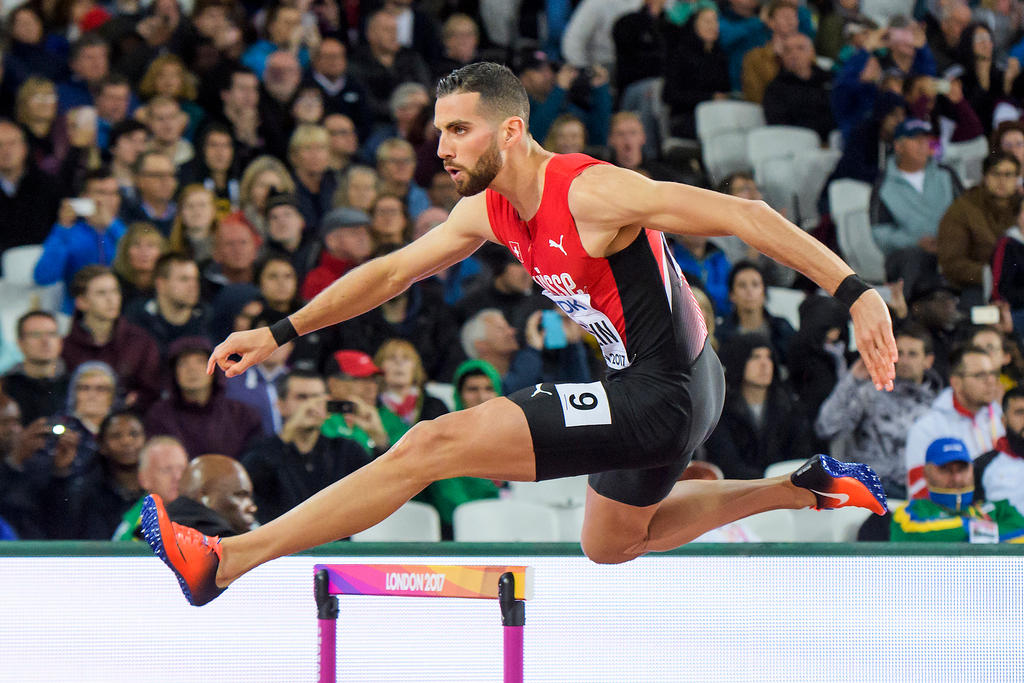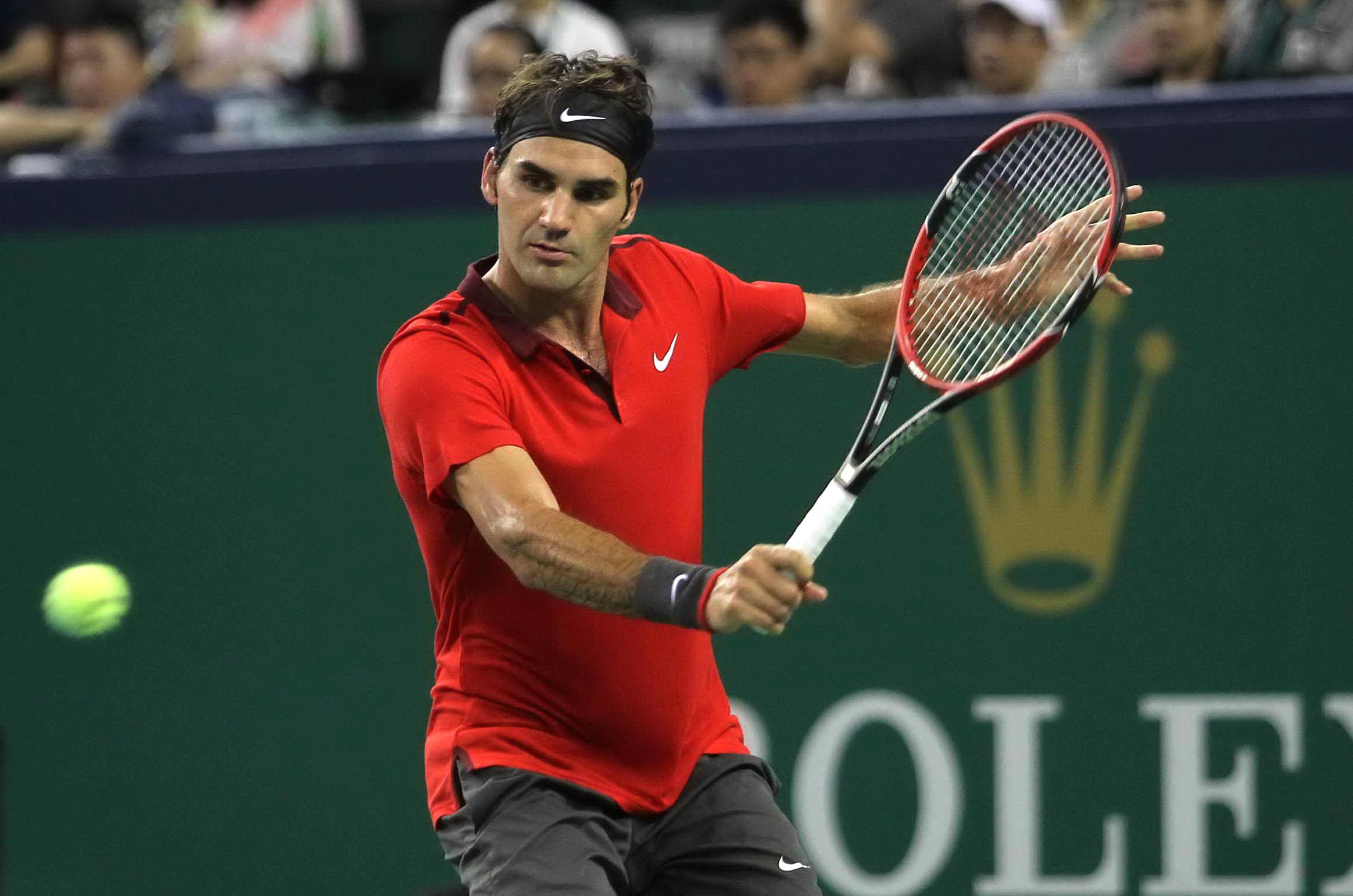Athletes get boost to their job prospects

A record 171 athletes will be representing Switzerland at the Winter Olympics in PyeongChang, which start on Friday. But only a few can make a living from their sport. They need a job and a company willing to be flexible over training and competition needs. Enter the new “athlete-friendly companies” label.
Curler Benoît Schwarz, a bronze medallist at the World Men’s Curling Championship last year, is among those going to South Korea. He trains 25 hours a week and feels top fit, but he is lagging behind on the career front, despite having a Bachelors degree.
“When I compare myself to my peers, we have the same education but I needed longer because of the sport and now I am getting older. My peers can get a better hold on the work market,” 26-year-old Schwarz told Swiss public television SRFExternal link ahead of his trip to PyeongChangExternal link.
Flexible
Flexible employers are key. This is why the Swiss Olympic Association (Swiss OlympicExternal link) has founded, along with the employment firm Adecco Group, a new labelExternal link: “athlete-friendly companies”.
The programme, which was launched on January 29, is aimed at making Swiss firms aware of the skills and potential of top athletes and helping these sportspeople gain jobs and experience.
“With athletes, businesses gain employees who are already used to being organised, long-term planning and delivering a performance, but who are also used to losing and then recovering from this. They are also used to taking risks,” said Roger Schnegg, Swiss Olympic director.
The Adecco Group is coordinating the scheme, taking into account factors such as where the athlete would like to work, but also where he or she trains and lives, so that a placement is as practical as possible.
Schwarz’s internship
Schwarz is the first signee to the scheme. He will start an internship at Swiss International Air Lines on March 30, after he comes back from PyeongChang.
Christoph Ulrich, head of HR at Swiss, said Schwarz’s internship was just the beginning. “In the mid-term, we would like to expand our programme and offer more internships and, if possible, some permanent positions as part of this programme,” he told SRF.
Apart from Adecco and Swiss, the Swiss Federal Railways and Dynoptic, an opticians group, have also signed up to the “athlete-friendly companies” label, says Swiss Olympic.
Schwarz is one of five athletes signed up to the label scheme, Jost Hammer, head of athlete and career support at Swiss Olympic, told swissinfo.ch by email. This is expected to rise to ten soon.
The new label, Hammer said, will help build up a network of firms that will offer opportunities to sportspeople in Swiss Olympics’ existing athletes career programmeExternal link, which offers help with a dual career and studies. “The label is a clear commitment for Swiss sport,” he said.
Burden
Not many elite athletes in Switzerland are able to make a living from their sport. An income like that of Swiss tennis star Roger Federer – an estimated $64 million (CHF60 million) in 2017,according to Forbes magazineExternal link – is rare. A study published in 2011External link estimated than only 16% of Swiss elite athletes made more than CHF70,000 ($75,000) a year.
This is why jobs that offer flexibility, taking into account long training hours and competition attendance, are so important, experts say. Athletes also have to bear in mind what they do after their sporting career is over, when they may only be in their early thirties (unless you are FedererExternal link, of course).
The concept of a dual career is promoted by the European UnionExternal link. Although there are no statistics on how Switzerland compares with other countries in terms of elite athletes and careers, Hammer said that in most countries where there was a programme to help sportspeople, athletes were successful in finding jobs. The new label for companies as promoted by Swiss Olympics was, to his knowledge, a unique programme for elite athletes.

In compliance with the JTI standards
More: SWI swissinfo.ch certified by the Journalism Trust Initiative




You can find an overview of ongoing debates with our journalists here. Please join us!
If you want to start a conversation about a topic raised in this article or want to report factual errors, email us at english@swissinfo.ch.